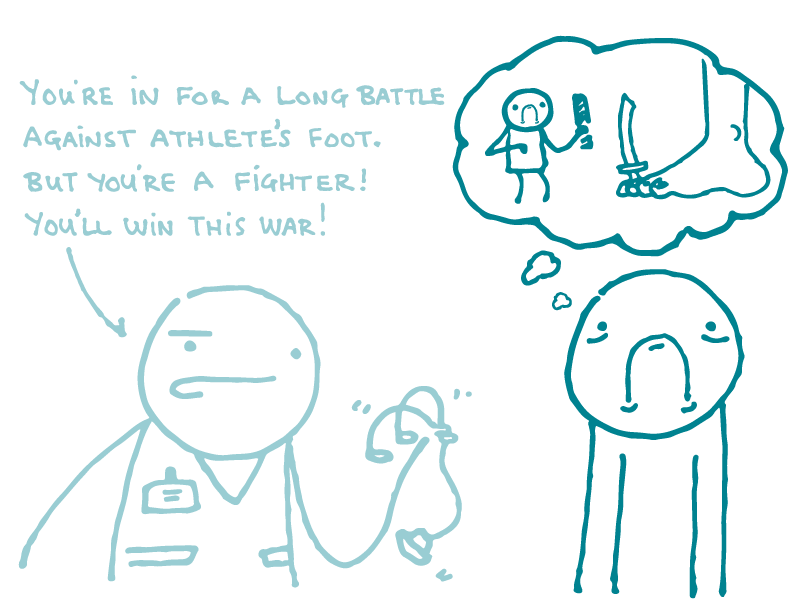
Chances are you’ve heard of the “war on cancer.” Maybe you’ve written about someone who “beat” their disease — or “lost the battle.” Doctors, patients, and health writers use militaristic language all the time. But today, dear readers, we’re calling for a ceasefire in health materials.
Why? Because the connotations of these words can affect the health decisions people make and the way they feel about their health. Say someone dies of cancer and you write that they “lost their fight.” Could that imply that they didn’t try hard enough? That dying of cancer was somehow their fault? Ugh.
Research has shown that patients who use negative metaphors like “enemy” to describe their disease are more likely to feel depressed and anxious. And militaristic language doesn’t just affect current patients. Studies show that framing cancer prevention as a fight against an enemy can make people less likely to take steps to reduce their risk of cancer.
As health communicators, it’s our job to think about these things. And there are plenty of ways to write about serious diseases without firing off fightin’ words.
Follow these tips to (mostly) avoid militaristic language in health content:
- Be direct. It’s okay — good even — to just write about “having cancer” (or whatever you’re writing about). These words are simple, accurate, and easy to understand. No need for “fighting,” “battling,” or “waging war.” People have cancer. Period.
- Consider other metaphors. Metaphors can be super useful when communicating about health — they can help people understand complicated topics and make emotional connections. So try other options on for size! For example, you could frame a disease as a journey that patients experience or a puzzle that researchers are trying to solve. You’ll get the point across without the war words.
- Take your cue from your audience. You may not need to eliminate militaristic language from your health writing lock, stock, and barrel (see what we did there?). Some people with cancer or other diseases may find militaristic words motivating and empowering. If that’s the case, then great! Let’s just call this reason 348,578,756D to test your health materials with your target audience.
The bottom line: As a rule, leave the war words to the war correspondents — and out of your health content.
Browse recent posts